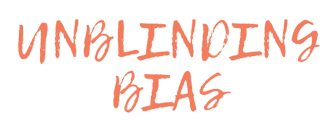In a world that thrives on diversity and individuality, it is disheartening to witness the presence of personality bias and its toxic counterpart, workplace bullying. However, with awareness, education, and a collective commitment to change, we can break these chains and create empowering and inclusive environments where everyone can thrive. In this blog post, we will explore the concepts of personality bias and unconscious bullying, shed light on their detrimental effects in the workplace, and provide actionable strategies to foster a culture of respect, understanding, and support.
Understanding Personality Bias and Unconscious Bias
To dismantle the foundations of personality bias and unconscious bullying, we must first understand their roots and dynamics.
Defining Personality Bias
Personality bias refers to the tendency to favor or discriminate against individuals based on preconceived notions about their personality traits, behavioral tendencies, or preferences. These biases can be unconscious, ingrained from societal influences, upbringing, or personal experiences.
Unmasking Unconscious Bias
Unconscious bias, on the other hand, encompasses the automatic and unintentional preferences or judgments we hold towards certain individuals, often influenced by stereotypes, assumptions, or implicit associations. It is crucial to recognize that even well-intentioned individuals can harbor unconscious biases that impact their perceptions and interactions with others.
The Impact of Personality Bias and Workplace Bullying
Personality bias and workplace bullying have far-reaching consequences that impede personal growth, erode self-esteem, and hinder collaboration and innovation within organizations.
Creating a Hostile Work Environment
When personality bias goes unchecked, it can foster a hostile work environment where individuals feel marginalized, disrespected, and excluded based on their unique characteristics. Such an environment stunts creativity, productivity, and overall job satisfaction.
Stifling Professional Growth
Employees subjected to unconscious bullying and personality bias often face barriers to career advancement, as their abilities and potential are overshadowed by stereotypes and unfair judgments. This limitation not only affects individual growth but also deprives organizations of diverse perspectives and fresh ideas.
Empowering Individuals to Overcome Personality Bias
Breaking free from the shackles of personality bias requires a proactive and collective effort, empowering individuals to challenge their biases and create a supportive and inclusive workplace.
Cultivating Self-Awareness
Developing self-awareness is the foundation for dismantling personality bias. By reflecting on our own biases, acknowledging their existence, and understanding their impact, we can actively choose to embrace empathy, openness, and fairness in our interactions.
Embracing Diversity and Inclusion
Promoting diversity and inclusion initiatives helps foster a workplace culture that values and celebrates differences. Actively seeking diverse perspectives, experiences, and backgrounds enriches organizational culture and facilitates the growth of a vibrant and inclusive community.
Strategies to Foster an Inclusive Work Environment Creating an empowering and inclusive work environment requires a multifaceted approach that combines education, policy implementation, and supportive measures.
Awareness Training
Organizations can conduct regular awareness training sessions to educate employees about unconscious bias and its impact on workplace dynamics. By fostering understanding and empathy, these trainings empower individuals to recognize and challenge their own biases.
Implementing Clear Policies
Establishing clear policies that explicitly condemn workplace bullying and personality bias sets the tone for zero tolerance. Such policies should be widely communicated and supported by robust mechanisms for reporting and addressing instances of misconduct.
Nurturing a Supportive Culture of Respect and Collaboration
Creating a nurturing environment that upholds respect, collaboration, and support is paramount to overcoming personality bias and unconscious bullying.
Promoting Open Communication
Encouraging open communication channels allows employees to voice their concerns, share ideas, and address any issues related to bias or bullying. Active listening, empathy, and constructive feedback form the pillars of effective communication in an inclusive workplace.
Encouraging Allyship and Mentorship:
Creating opportunities for mentorship and allyship programs fosters connections between employees, enabling them to support one another and break down barriers caused by personality bias. Allies and mentors play a crucial role in providing guidance, amplifying voices, and championing inclusivity.
Continuous Learning and Growth Breaking free from personality bias and unconscious bullying is an ongoing journey that requires a commitment to continuous learning and growth.
Evaluation and Reflection
Regularly evaluating individual and organizational progress towards inclusivity allows for self-reflection and identification of areas for improvement. Honest self-assessment and collective efforts enable us to dismantle biases and create positive change.
Celebrating Successes
Recognizing and celebrating the achievements of individuals and teams from diverse backgrounds cultivates a culture of appreciation and acknowledges the power of inclusivity in driving success. By highlighting these successes, we inspire others to embrace diversity and foster a truly empowering work environment.
By actively confronting and challenging personality bias and unconscious bullying, we can transform our workplaces into empowering and uplifting spaces where every individual is valued, respected, and given the opportunity to flourish. Let us embark on this journey together, celebrating our unique qualities and embracing the strength that diversity brings to our lives and organizations.
